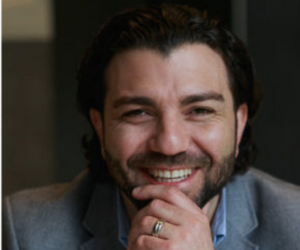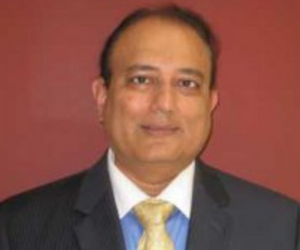Sexual Violence: What The Clinician Needs To Know
SEXUAL VIOLENCE IS COMMON
One in three women has experienced sexual activity where consent is not obtained nor given freely. According to the Centers for Disease Control and Prevention (CDC), this constitutes sexual violence. On college campuses, approximately one in two college age women will experience sexual violence. In the case of penetrative sex, it’s one in ten. In the preponderance of cases, the women were under the age of 25, so it’s adolescents and young adults who are most at risk.
THE PERPETRATOR IS TYPICALLY SOMEONE KNOWN TO THE VICTIM
We may have an image of a stranger throwing his victim into the back of a van, but most often the victim already knows her abuser. Many cases of sexual violence occur in the context of intimate relationships and are a form of intimate partner violence.
We are also increasingly becoming aware of the extent of the sexual exploitation of minors. The kind of case we see too often is a 14-year-old female runaway. She has a one in three chance of being sexually exploited within 48 hours of running away. A guy will offer her a place to stay while assuming the role of boyfriend and protector. However, in short order, he may be telling her, “I love you and I want you to show me that you love me by doing this!” Or, “I still love you, but we need to make ends meet, and do this for me just this once.” Often he’ll use drugs as a way of controlling her. There are even sites on the Internet that tell pimps how to groom their victims.
INTERNET PORN IS MAKING IT WORSE
The Internet has sites that combine intensely violent porn with no mutuality and no consent. Unfortunately, this influences the way adolescents may think about sex. They accept lack of consent and the use of force as normal aspects of sexual activity. For adolescent males, including members of athletic teams or fraternities, porn exposure may also contribute to hyper-masculine attitudes that condone violence against women and treat sex as a form of conquest.
What’s missing in the conversation is what is good sex versus violent sex. When I talk with youth about what constitutes good sex, we talk about how sex should be pleasurable, they should not have to worry about preventing disease or pregnancy, and there’s always consent. A problem with sex education programs in the schools is they hardly touch the consent part of this. The sex ed conversation is apt to be about how to avoid getting a disease or getting pregnant. Other aspects are to be covered as well. For example, what constitutes healthy sex for the one in four young people who are experiencing same-sex attraction? Adolescence is a fluid time for gender and sexual identity development. Youth attracted to the same sex are likely to be getting harmful information from the Internet.
THE YOUNG WOMAN IN YOUR CLINIC MAY BE EXPERIENCING ABUSE
Given how painfully common sexual violence is, health care providers need to be aware of the real possibility that the patient sitting in front of them has experienced or is experiencing abuse. Keep in mind that one in three young women have experienced abuse, and on top of that, young women who have been or are being abused seek treatment in disproportionate numbers.
They may be seeing you for chronic pain, headache, or other physical symptoms. This is because the abuse has a huge impact on both their mental and physical health. Underlying abuse may be what’s driving them to the clinic. And it is also unlikely that they are going to come in with abuse as the leading chief complaint. It is our job as health professionals to create safe and confidential spaces. This allows open conversations about healthy relationships and the respect that everyone deserves in their relationships, including sexual encounters.
BE TRAUMA-INFORMED
Being trauma-informed means being aware that many of your young patients have experienced sexual violence. It also means being sensitive to their needs for safety and respect; don’t force them to disclose their abuse. Instead, during an office visit, give examples of nonconsensual sex by asking appropriate questions.
“A number of young people who come into our clinic have had experiences of being made to do something sexual they didn’t want to do. Has anything like that ever happened to you or to someone you know?”
I get disclosures by offering universal education about healthy relationships and routinely asking patients about their experiences. Especially when the atmosphere is not threatening or judgmental. Such as when we may be talking about “a friend.”
Education can also include discussion of harm- reduction behaviors. Such as keeping a dose of emergency contraception handy or using a form of birth control that a partner can’t tamper with. As well as a discrete educational card that lists resources and options for increasing safety. Let your patient know that your clinic is a safe place and that you can connect her to people who can help and provide support. Let her know she can come in any time to talk about these issues.
KNOW YOUR LOCAL RESOURCES FOR SUPPORTING SURVIVORS OF SEXUAL VIOLENCE
Find out who are the local domestic or sexual violence advocates. Build a relationship with them so you can call on them when needed. In my clinic, I know of advocates who will come and meet with my patients or talk with them on the phone. I have a close enough relationship with them that I can tell my patient, “If you want, we can use the phone in my office right now so it doesn’t show up on your cell phone.” Our ability to help youth and young adults who have experienced sexual violence to connect to advocates through this “warm referral” process and know that their options for safety and support are a key role for us as health professionals.
Search Articles
Latest Articles
Investing in Ukraine: A High-Potential Market with Some (Literal) Landmines
https://www.wealthmanagement.com/high-net-worth/investing-ukraine-high-potential-market-some-literal-landmines Publication –wealthmanagement.com
Architect of Her Life
https://medium.com/@ken.roman_84029/architect-of-her-life-78e38401de71 Publication –medium.com
Meet Clara Kaluderovic
https://canvasrebel.com/meet-clara-kaluderovic Publication – canvasrebel.com
New Jersey drone sightings expose America’s battlefield blind spot
https://www.washingtontimes.com/news/2024/dec/23/new-jersey-drone-sightings-expose-america-battlefi Publication –washingtontimes.com
Subscribe to Updates
About Author

Mitzi Perdue is the widow of the poultry magnate, Frank Perdue. She’s the author of How To Make Your Family Business Last and 52 Tips to Combat Human Trafficking. Contact her at www.MitziPerdue.com
All Articles
Why You Need a Family Legacy Mindset
Why You Need a Family Legacy MindsetWhen Vincent Valeri joined the wealth management industry in 2011, he realized there was an extraordinary gap in what most of these organizations offered and what almost all families need. The organizations, he discovered, might be...
Putting the “Family” in Family Business: It’s Worth It
Putting the "Family" in Family Business: It's Worth ItHere’s a question for you: to qualify as a family business, do at least some members of the business need to be related by blood or marriage? Tobi Silver, President of Sterling Resources, LTD has a simple,...
How to Make Your Family Live up to Its Promise
How to Make Your Family Live up to Its PromiseLisa Niemeier, family office consultant and founder of graymatter Strategies LLC, feels that family wealth is a gift. Too often and with too many families, this wonderful gift isn’t allowed to live up to its promise. In...
Silver Arrow’s Secret Sauce: An Investment Thesis Approach
Silver Arrow’s Secret Sauce: An Investment Thesis ApproachLet’s suppose a delightful situation. One way or another (maybe through inheritance, or you got a bonus, or you sold your company) you have some money available to invest. It’s a responsibility. What’s your...
How to Preserve Your Legacy, Using a Stone-Age Technique
How to Preserve Your Legacy, Using a Stone-Age TechniqueAndrew Suhl has added an electronic twist to a Stone-Age practice. Amazingly, the ancient practice we’re talking about is one that even today is one of the most essential tools for keeping your family together...
Seven Tips for Personal Cyber Security
Seven Tips for Personal Cyber SecurityRajesh Mahadwar, CEO of Softkey,Inc., is a great friend of mine, and we bonded over a shared interest in cyber security. He knows my opinion, that if you don’t get this right, you’re letting yourself in for a world of misery and...






